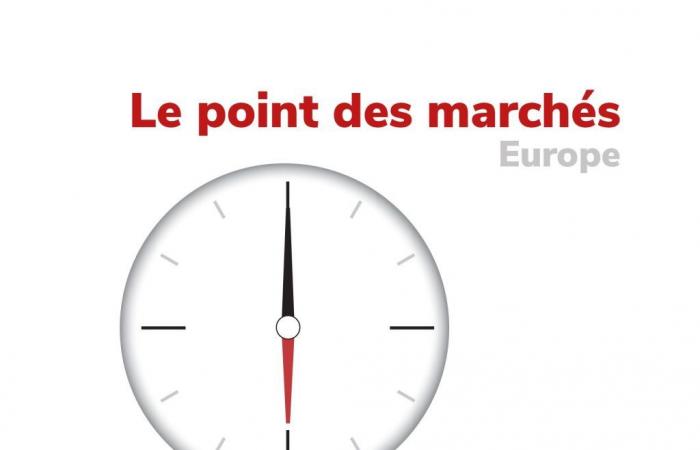Paris finished down 2%, while London fell 1.01%. Frankfurt lost 0.76%. In Zurich, the SMI lost 0.53%.
European stock markets fell sharply on Monday, weighed down by profit-taking and a plunge in the automobile industry, despite new stimulus measures from Beijing which caused Chinese indices to jump.
On the Old Continent, cascading profit warnings from several automobile groups weighed: the Paris Stock Exchange ended down 2%, while London fell 1.01%. Frankfurt lost 0.76%. In Zurich, the SMI lost 0.53%.
On Wall Street, the indices move without momentum. Around 4:01 p.m. GMT, the Dow Jones lost 0.28%, and the broader S&P 500 index (-0.02%) and the Nasdaq (+0.02%) remained stable.
“The markets needed a breather after a week of gains. There are profit taking for the last day of the month,” Lionel Melka, manager at Swann Capital, explains to AFP.
World stock markets were lifted last week by the announcement of a multitude of stimulus measures by the Chinese government to stimulate flagging consumption in the world’s second-largest economy.
From now on, “we will have to wait for proof that these measures work,” according to Mr. Melka.
Only the Chinese stock markets continued to benefit from this dynamic on Monday. Shenzhen soared by 10.67% and Shanghai by 8.06%. Hong Kong climbed 2.43%.
This week, investors’ eyes should turn to the United States, with the monthly ADP/Stanford Lab survey, which measures job creation in the private sector, before the highly anticipated American employment report on Friday. .
“The subject is future interest rate cuts by the American Federal Reserve (Fed), and the key indicator for anticipating them is the evolution of employment figures,” explains Lionel Melka.
The weaker the labor market, the more the markets expect the Federal Reserve to adopt an aggressive policy of lowering rates to support economic activity.
In this context, the two-year American rate, more sensitive to changes in monetary policy, reached around 3:50 p.m. GMT 3.61%, after 3.56% on Friday at the close. At ten years, it stood at 3.78%, compared to 3.75%.
In Germany, inflation in August fell to its lowest level since February 2021, which should reinforce investors’ conviction that the European Central Bank should accelerate the pace of its rate cuts at its upcoming meetings.
The President of the ECB Christine Lagarde also expressed on Monday, during a hearing at the European Parliament, her confidence in the imminent return of inflation to 2%, suggesting that a further reduction in rates could take place. in October.
The automotive sector is going backwards
British luxury car manufacturer Aston Martin tumbled 24.51% in London after announcing that its annual results would be weighed down by disruptions in its supply chain and weakness in the Chinese market.
In Paris, the Franco-Italian-American manufacturer Stellantis fell 14.67% after Monday’s announcement of a clear downward revision of its operating margin objective for the year 2024. The group now estimates it between 5.5% and 7% against a “double-digit” target previously, pointing to a “deterioration” of the automobile market.
Volkswagen (-2.02% in Frankfurt), the leading German and European automobile manufacturer, for its part lowered its turnover and profitability forecasts for 2024 on Friday evening due to the slowdown in sales.
In Europe, Renault dropped 5.57%, Volvo 3.54%, OPmobility (-4.12%), Porsche 2.86%, BMW 2.42%.
Rightmove ups the ante
The British real estate advertising site Rightmove plunged (-7.66% in London). The Australian REA Group, controlled by media mogul Rupert Murdoch, has given up on acquiring the group, which had rejected a fourth takeover offer.
Hesitant oil
Oil prices are hesitant on Monday, weighed down by the prospect of an increase in production but sensitive to geopolitical risk after new strikes by the Israeli army in Lebanon and Yemen.
Around 3:50 p.m. GMT, the price of a barrel of Brent from the North Sea remained stable (+0.00%) at $71.98 and a barrel of American West Texas Intermediate (WTI) gained 1.26%, to 69.04 dollars.
On the foreign exchange market, the dollar gained 0.19% against the euro, to 1.1142 euros.
Bitcoin fell by 3.12% to $63,775.77.






